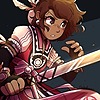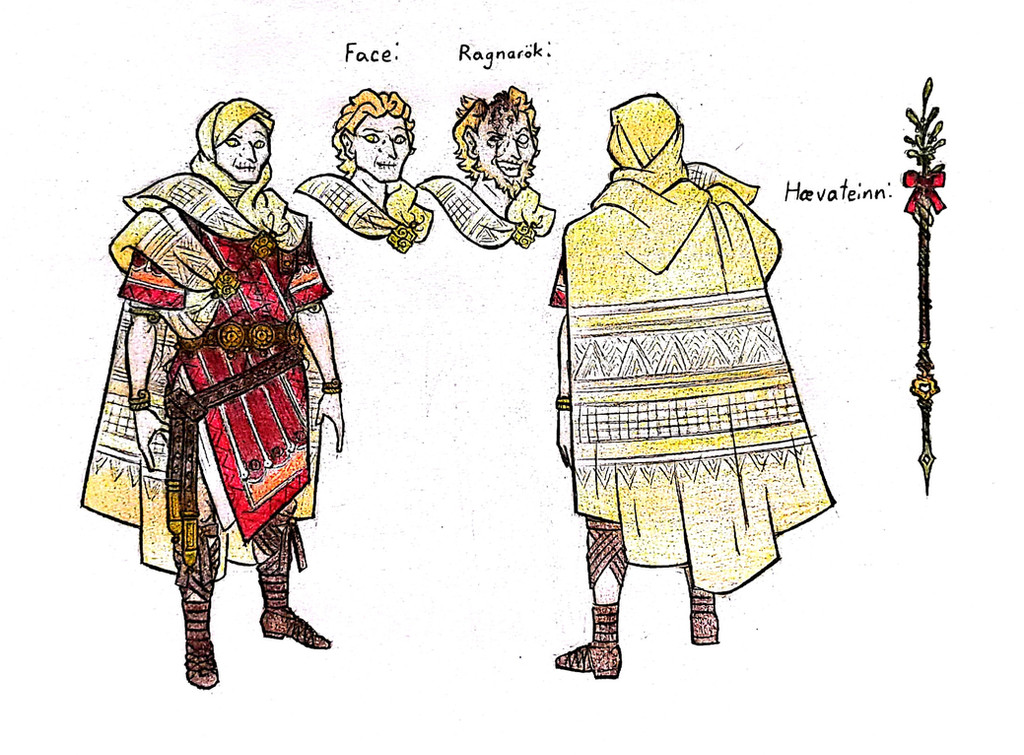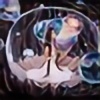HOME | DD
 Avapithecus — Loki
Avapithecus — Loki

#character #design #germanic #god #loki #mythology #norse #referencesheet #trickster
Published: 2023-07-01 13:41:05 +0000 UTC; Views: 5108; Favourites: 72; Downloads: 0
Redirect to original
Description
Loki (also known as Loptr) is simultaneously one of the most iconic and enigmatic characters in all of Norse mythology. You may remember him in his role as Tom Hiddleston in the MCU. He is the penultimate trickster figure, serving as the bane of the gods as much as he is their savior. Though modern media often portrays him as the master of manipulation, in our original sources, he's honestly not very good at weaseling his way out of sticky situations. He is a liar, but his lies are almost comically bad and really just serve to give him time to escape. Still, it's undeniably fitting how much of a tizzy Loki's mysterious development has stirred in Norse academic studies. He only seems to appear in the Eddas, with no clear literary development to trace that hasn't been influenced by unreliable narrators. The oldest possible reference to Loki that I could find is inscribed on the 6th century Nordendorf fibulae, which contains the word "logaþore", but this identification is far from certain. Even if we assume this does refer to Loki, it's nothing more than a name, so it doesn't exactly help us narrow down Loki's origins as a character.Going all the way back to Jacob Grimm, it was once assumed that Loki must be identical to the jötunn Loge who appears in the Prose Edda, whose name literally means "fire", despite the two appearing in the same room at the same time. This is why Richard Wagner and D&D portray the trickster with heavy fire themes. However, this etymology is now outdated. Instead, it seems Loki's name is cognate to the Germanic root "*luk-", which relates to things like knots, loops, and locks, and maybe spiders. This would mean his name means something like "the Entangler", which is certainly fitting, but still kinda leaves us at square one. Archaeology isn't especially helpful either. He does appear in the material culture of the Vikings, albeit barely, and very late. He is most famously depicted on the Gosforth Cross, which is obviously a later Christian artifact, and he seems to be depicted on a hearthstone dated to the turn of the millennium. The latter artifact may lend credence to the theory that Loki was originally a protective spirit of the hearth and home, some sort of sprite who had minor illusionary powers. It would certainly make sense given how driven Loki is by his family, but we have to dive into the mythology before that comes into focus.
Snorri Sturluson's Prose Edda tells us that Loki is the son of the jötunn Fárbauti and the goddess Laufey. This is why he's often named as Loki Laufeyjarson, as it's a rare instance of the mother outranking the father. Why Laufey is made Loki's jötunn father in the Marvel universe, I honestly couldn't tell you. I tried to look it up but came up short on explanations that didn't amount to a shrug. Snorri also tells us that Loki's biological brothers are the mostly unattested Býleister and Helblindi. Many have attempted to identify Helblindi with Odin, who actually claims Helblindi as one of his names in the poem Grímnismál (depending on the manuscript). It's a tempting connection, but no one in any medieval manuscript outright says these two are the same, and Odin is never called Loki's biological brother in any context. They are however consistently referred to as sworn brothers, having blended their blood at some point in the mythic past. Lokasenna suggests that they specifically swore to be drinking buddies, so that one should never drink without the other. Like a true chad, Odin's exclusive form of sustenance is mead, so we can assume this is the only reason he keeps Loki around. Well, okay, that, and it's really, really easy to shove literally everything that goes wrong in Asgard onto Loki's shoulders whether he's actually responsible for it or not.
In fact, for all his mischievous reputation, more often than not, Loki is actually the one assigned to fix the gods' problems. Once, a jötunn craftsman offered to build a grand fortress to protect Asgard in exchange for the goddess Freyja. The gods really wanted that fortress, but they also reeeeally didn't want to pay for it, so of course the compromise was to send Loki in as a mare to… um… "distract" the jötunn's horse, which is how Odin ultimately got his eight-legged horse Sleipnir. The ploy didn't even work, funnily enough. The jötunn was only persuaded by having his head bashed in by Thor, the solution to literally every problem that has ever plagued the cosmos ever. Thor actually seems to be the only god who has any semblance of true friendship with Loki. Like yeah, he's always sick of Loki's shit and threatening to bash his brains in, but I mean come on, you have that friend too, don't kid yourself. Thor and Loki are often portrayed as traveling buddies, always getting into wacky antics together. When Thor's hammer was stolen by the jötunn Þrymr, who… again wanted Freyja's hand (Freyja has about as many suitors as Cartman's mom) it was Loki who crafted the plan to crossdress Thor to trick the jötunn into handing it back to him. You can guess the end result of that reunion. Loki also assisted Thor in the sports competition against the confusingly named jötunn, Útgarða-Loki. Funnily enough, Loki and Loge actually compete in an eating contest during this episode, and Loki is unable to keep up because Loge is actually the all-consuming fire. Thor and Loki's relationship is tenuous, but I think Thor's multiple warnings to Loki in Lokasenna, a courtesy he never affords anyone else, proves that he doesn't want to harm his friend, but he will if he has to.
Which at last brings us to the incredibly tragic side to Loki's character which I honestly believe often just gets lost or disregarded in his portrayal as the "master manipulator". Looping back around to Loki's family life, he sired three monstrous children with the jötunn Angrboða: the world serpent Jörmungandr, the wolf Fenrir, and the half-corpse goddess Hel. The exact relationship with his children is never specified, but context clues paint a pretty clear picture that he loved them dearly. The gods, however, could not look past their monstrous nature. Odin had gained forsaken wisdom which spoke of his death in the jaws of Fenrir at Ragnarök, of Thor succumbing to the serpent's venom, and Hel marching her army of the dead on the realm of the gods. In an attempt to avert his fate, Odin flung Jörmungandr into the sea, and cast Hel into Niflheim. Fenrir, though, could not be disposed of so easily. The pup grew up in Asgard, befriending the god Týr, but Odin only grew more and more paranoid as the wolf grew larger and larger. Ultimately, Odin tricked Fenrir into being bound in chains that were impossible to break, sacrificing Týr's hand as collateral in the process. It's unclear if Týr was in on this betrayal, but he certainly seems haunted by it. In Lokasenna, the poem where Loki finally snaps and insults each of the gods one by one, Týr's only response is to emphasize the loss of his hand with the loss of Loki's son.
It was too little, too late, though. Loki was sick of always being the butt of the joke, of being forced to take on the burden of the consequences of the Æsir's misgivings, but then they hurt his family, and that was unacceptable. While Lokasenna might have been written as a sort of comedic play, it can easily be read as a desperate father willingly digging himself his last hole as he stands up to more powerful beings who are just waiting for an excuse to dispose of him. The real kicker was when Loki admitted to having a part to play in the death of Odin's most beloved son, Baldr, having given the blind god Höðr the mistletoe projectile that could pierce Baldr's otherwise invincible skin. An eye for an eye, wouldn't you say, Odin? Evidently, no, Odin wouldn't say that, because Odin's response was to have Loki bound underground in the entrails of his own son, with a snake dangling above his head dripping venom onto his face for all eternity. Loki's wife Sigyn sits by his side with a bowl to catch the venom, but that bowl eventually gets full, and when she goes to empty it out, a little bit drips onto his head. His writhing in agony in these moments is said to be what causes earthquakes. There Loki lies chained to this day, waiting for the foretold day that he and his wolfish son will escape their bonds and destroy the gods. Odin, in all his paranoia, gave his enemies the very tools and motivation they'd need to fulfill the prophecy which he had burnt all his bridges to prevent. Loki himself will die in battle against Heimdall, who is clearly his nemesis in other poems but the reasons are sadly lost to us. Fenrir, however, will avenge them both by swallowing the Allfather and ending his reign of selfish terror once and for all. It is certainly possible to see Loki as the villain, but as someone who is currently going through the pain of dealing with her family getting royally screwed over by the more fortunate, whose had her trust betrayed when she offered so many second chances, I can't help but sympathize with Loki, and offer him a spot on my altar. Though I consider myself a pacifist, I still imagine myself fitting much more in Loki's army than among Odin's einherjar.
Design notes, much like Thor, Loki is a character who has been imagined and reimagined so many times in modern media, so it was a bit of a struggle to design something that was uniquely me. Like I said, there aren't many contemporary depictions of Loki, and he's not really described in any way in the Eddas. The pattern and colors of his main tunic is ripped straight from the 18th century Icelandic manuscripts which feature illustrations of episodes in the Eddas, while his cloak is inspired by costume sheets for Wagner's opera, though those lean heavily into the fire theme that Loki probably didn't actually have. The shape of his tunic and cloak were inspired by a couple of illustrations of the events in Ægir's hall which sadly I wasn't able to source or even relocate one of them. The smaller bits and bobs meanwhile were compiled from illustrations by John Bauer. As for my own creative choices, while most historical depictions seem to draw Loki with a beard, I wanted to make him a little more androgynous. Loki is a shapeshifter and he often changes his gender to suit his needs, so I saw it fitting to blur that line a little, save for his Ragnarök headshot. That seems like the time when the gloves come off and he's not worried about his tricks anymore. I also included some stitch scars on his mouth, both as a reference to the story where the dwarves Loki lost a bet to sew his lips shut, and to the Snaptun hearthstone I mentioned earlier which itself seems to be an allusion to that same story. I also went back and forth on whether or not to include horns. On the one hand, there is one depiction of him with horns, it's on the Kirkby Stephen Stone. However, there is some debate as to whether this is actually Loki or if it's just the Christian Devil. It's hard to say, and this is the only place I could find where he has horns regardless. I ultimately opted against it. It's a cool visual, but it seems too closely associated with the Marvel Loki, who I'm sorry to say is probably the least accurate version of them all. Hey look, I'm hooked for season 2 too.
Related content
Comments: 15

👍: 1 ⏩: 1

👍: 0 ⏩: 0

👍: 1 ⏩: 1

👍: 0 ⏩: 1

👍: 1 ⏩: 1

👍: 0 ⏩: 1

👍: 1 ⏩: 0

👍: 1 ⏩: 1

👍: 1 ⏩: 0

👍: 1 ⏩: 1

👍: 1 ⏩: 1

👍: 1 ⏩: 1

👍: 1 ⏩: 1

👍: 1 ⏩: 1

👍: 1 ⏩: 0
























